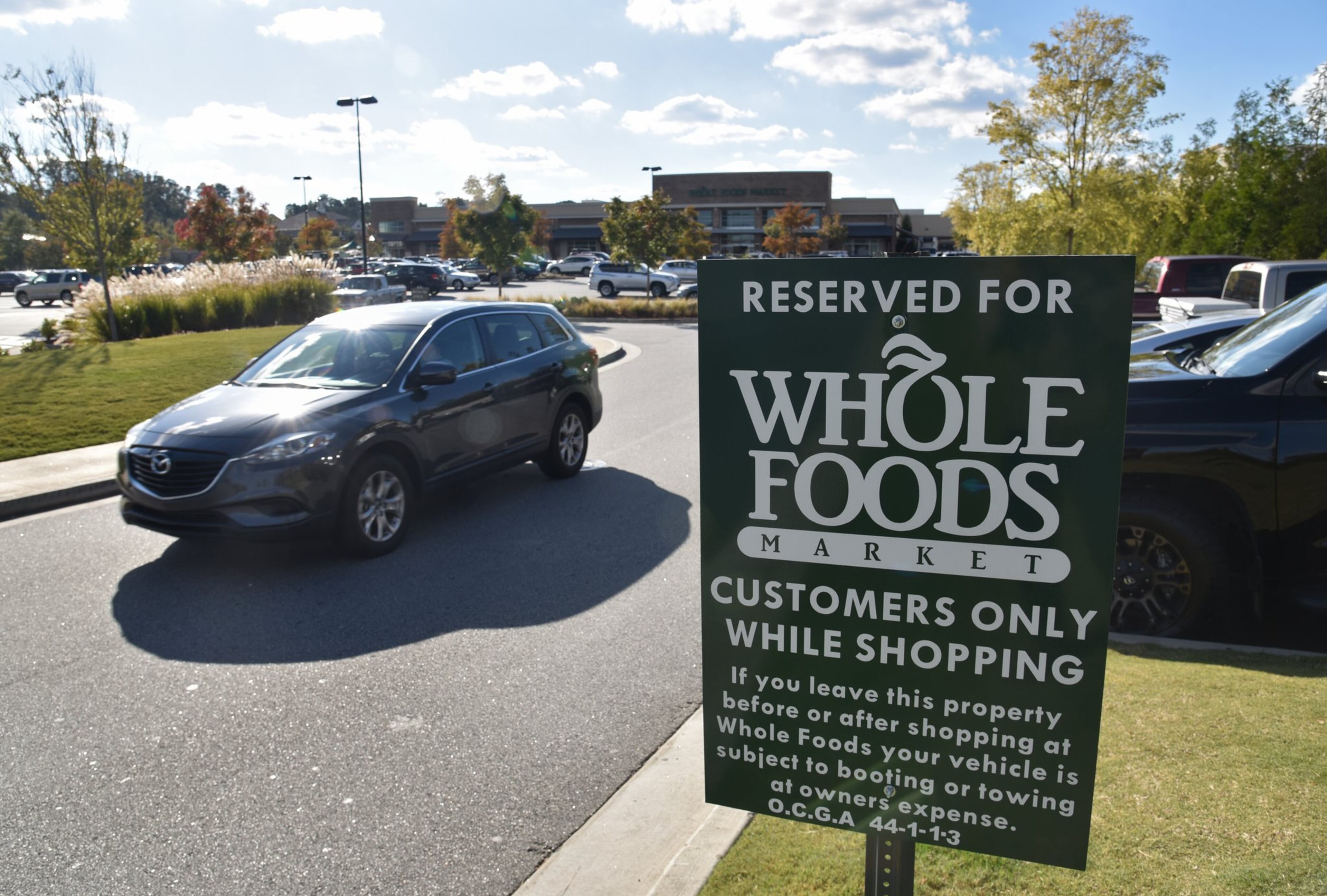House bill takes aim at booting

A bill that would effectively ban booting vehicles on private property passed its first legislative hurdle this week, despite the protests of booting companies who say they are providing a needed service.
State Rep. Matt Dollar, R-Marietta, said House Bill 469 is "the result of personal and cumulative frustration" with earlier attempts to regulate the industry. The bill passed the House Public Safety and Homeland Security Committee Monday and awaits a vote by the full House.
“I would like to see some very tight guardrails put on this industry now,” he told members of the House Public Safety and Homeland Security Committee in a hearing Monday. “There is a lot, a lot of bad stuff going on out there.”
Atlanta resident and long-haul trucker William Weathersbee would agree.
Last month, Weathersbee stopped to grab a to-go meal from a Wendy’s in south DeKalb County and parked his rig across the street in a dirt and gravel lot next to another 18-wheeler.
“A guy comes in the restaurant and said, ‘Hey man, they are booting your truck,’” he said. By the time he made it back across the highway, the attendant had placed two yellow boots on his rig. The parking lot belonged to an adjacent business, but Weathersbee said the signs prohibiting parking were not visible from where he parked. He said the attendant wanted $650 in cash to remove the boots.
I said, ‘What? Are you kidding me?’” he said. “I don’t think anyone carries that kind of cash on them nowadays.”
The high removal fee comes despite a DeKalb County ordinance passed in December limiting booting fees on trucks to $150. Weathersbee said he had no choice but to pay it.
“I’ve got to get on the road,” he said. “All I wanted was a sandwich.”
Atlanta attorney Matt Weatherington said those kinds of tactics are why consumers want lawmakers to rein in the practice.
“This is a clear message that we want them to take their business to other states,” he said of the bill.
Weatherington has been taking on booting clients for the last two years and advocating local and state leaders to take action. He called Dollar’s bill “a remarkable compromise that takes into account all of the bad acts of the booting industry.” Booting company representatives said it will force them out of business.
“It’s not a regulation. It’s completely banning booting,” said Michael Priest of Eagle Parking.
Jeff Phillips, owner of Advanced Booting, said the bill will eliminate hundreds of jobs.
“They are the kind of individuals that struggle to find jobs anywhere else,” he said. “It’s a different kind of job, but it needs to be done to regulate parking.”

In its current form, HB 469 would prohibit a vehicle from being booted on private property unless a tow truck driver signed a statement saying the vehicle could not be removed because of how it was parked. It also sets a $65 limit on booting fees, which is lower than the limit of $75 set in most jurisdictions that regulate the practice.
The bill specifically exempts private colleges and universities, some of which use booting to police parking on their campuses. And the legislation does not limit booting on public streets in municipalities that use booting to enforce parking limits.
Most of the public outcry over booting, however, has been over booting on private lots that serve multiple businesses in shopping areas. Stores contract with booters to patrol their lots, and zealous booters have angered motorists who get booted while straying from the shopping area. Booting company owners and some lawmakers argue the cost and hassle of towing is greater. But tow trucks can only tow so many cars, while a single booter can boot many cars at once, earning fees simply by taking the boot off.
Lawmakers have tried and failed to regulate booting before, but some recent violent encounters with booters in recent months helped push the issue. Last November, a motorist was shot during an altercation in Buckhead with a booting company employee. The man survived, but Weatherington, who is his attorney, said the incident shows why tough regulation is needed.
“The idea that the majority of these bad apples are going to clean up their act if you give them a slap on the wrist just isn’t true,” he told the committee.
Not every lawmaker was as enthused about banning booting. Rep. J. Collins, R-Villa Rica, worried the bill went too far.
“There are some really bad apples in this industry, but I think we would be rushing to judgment to try to come up with some kind of legislation in one legislative year,” he said. “Private property rights are very important to me.”
Others on the committee were more moved by their own experiences with booting companies — none of them positive. Rep. Micah Gravley, R-Douglasville, said a friend was booted at Krog Street Market for being three minutes late renewing his parking fee using a cell phone app.
“I want to see balance (with regulation), but it’s very very hard when you see situations like that,” he said.
The bill is a late mover for 2019. Thursday is “crossover day,” the day bills must pass at least one legislative chamber to make it into law in their current form. If it doesn’t make it to a floor vote, the bill likely would be stalled until the 2020 session.



